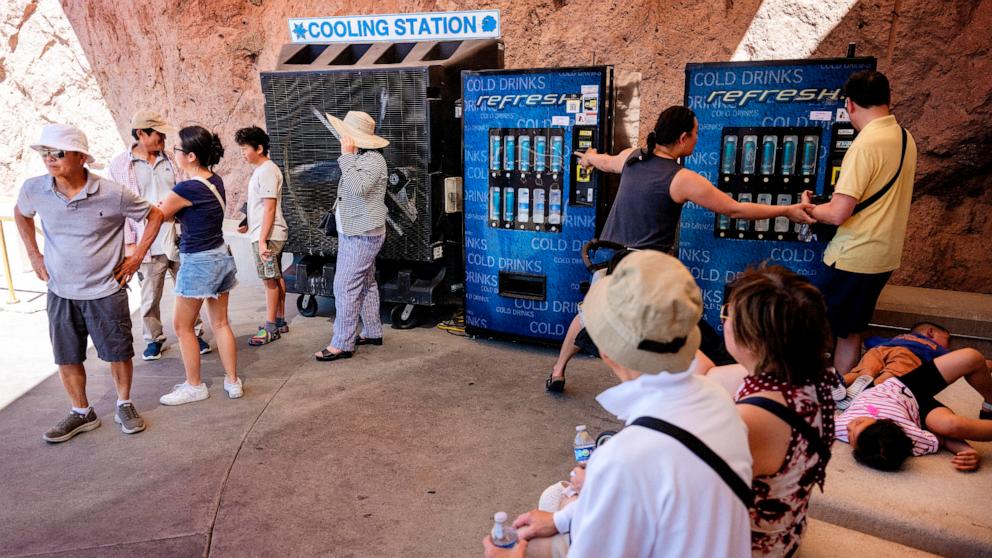265 million people are expected to experience 90-degree weather this week.
More than 55 million people across the country were on severe heat alert for Sunday and most of the week, with temperatures forecast to reach triple digits in some parts of the country.
Over the next seven days, 265 million people, or about 82% of the U.S. population, are likely to experience temperatures above 90 degrees as the official first day of summer arrives on Thursday.
A heat watch was issued Sunday for parts of New England, including Connecticut, Massachusetts and New Hampshire. Temperatures in Concord, New Hampshire are forecast to reach 101 on Wednesday.
New York City could feel its first heat wave of the year as temperatures are forecast to reach 90 degrees on Wednesday and 94 degrees on Friday.
Warm weather is expected in Pittsburgh on Tuesday, Wednesday, Thursday and Friday, with temperatures expected to reach 99 degrees.
The heat-wave forecast for Pittsburgh calls for the city’s all-time hottest June. The previous five-day June record occurred in 1994 with a temperature of 96.4 degrees.
The all-time record for a heat wave occurred in Pittsburgh in mid-July 1988, when city residents sweltered through five consecutive days of 98.6-degree temperatures.
Washington, D.C., is expected to be inundated with 90-degree weather and could reach the century mark by Friday.
High temperatures are also forecast for Ohio and southeastern Michigan, where an extreme heat watch is in effect Monday through Friday.
Chicago, Green Bay and Cleveland are expected to drop daily temperature records this week.
To the west, dangerous heat is expected in Texas, Arizona, Nevada and New Mexico.
Extreme heat warnings were issued for Phoenix and Tucson, Arizona, where temperatures threatened to reach 110 degrees on Sunday.
Roswell, New Mexico, is expected to reach 105 degrees on Sunday, and El Paso and Fort Stockton, Texas, are expected to be warmer.
Officials warn people braving high temperatures to stay hydrated, get out of the heat, and visit elderly neighbors and relatives.
In 2023, there were 2,302 heart-related deaths nationwide, a 34% increase from 2022.







